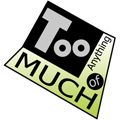
Iron is a metal, defined as a chemical element with the symbol Fe. It is the most dominant by mass element on Earth. Iron is a very important biological element that forms complexes with molecular oxygen present in the blood components of hemoglobin and myoglobin.
Side effects, conditions and dangers of too much iron intake
The human body has no efficient methods of iron excretion, therefore too much iron toxicity is a dominating factor and can only be effectively regulated by the uptake amounts.
Some studies indicate that hemoglobin rich in iron from the red meat facilitates the development of colorectal cancer due to a possible development of hemochromatosis, although there is a strong presense of controversy. Hemochromatosis (autosomal recessive disorder) occurs with the complex of significant iron overload.
The following are the acute symptoms that may occur with iron poisoning
- Abdominal cramps and diarrhea and with blood in stools associated with stomach lining ulceration
- Nausea and Vomiting
- Liver damage
Long term side effects of iron toxicity
- Development of blue tint of fingernails and lips
- White or pale skin tones
- Thyroid abnormalities
- Liver disease
- Pancreas damage with a possible occurrence of diabetes type 2
- Adrenal glands damage
- Impotence
- Menopause occurring earlier than biologically predefined
- Heart abnormalities and possibly congestive heart failure
- Arthritis
Symptoms of too much iron retention and toxicity
- Irregular heart rhythms
- Build up of fluids in lungs
- Metallic taste in mouth
- Fever and chills
- Dizziness
- Headache
- Chills
- Convulsions
- Lethargy
- Loss of consciousness or even coma developed within as little as 20 minutes after intake of highly toxic amounts of iron
Prevention and resolution of iron toxicity
- Avoid excessive iron supplementation if dietary iron intake is not known or is accurately calculated
- Establish a reasonably balanced diet
- Measure blood levels of iron to rule out any conditions that may contribute to iron toxicity
Daily recommendations of iron intake
The best way to supplement with iron is through the food products. Additional supplementation may be needed if there is no access to foods that contain iron.
- 8.7mg a day for men
- 14.8mg a day for women
Iron presence in the food
The highest amounts of iron are present in the following products
- Red meat
- Fish
- Fortified bread
- Chickpeas
- Blackeyed peas
- Tofu
- Leaf vegetables
- Beans
- Lentils
